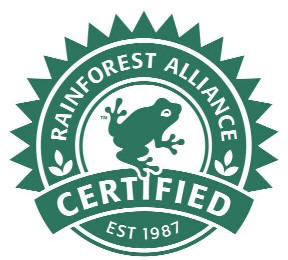By Tom Ellis of Entrepreneurial and creative branding agency 1HQ
The world has changed—all consumers are much more aware of what goes on behind the scenes of a brand: “the roof has been lifted off the house and we can all look in”. Although still driven by a vocal minority, this new tide of active consumerism has been regularly seized on by the press and brands have been trying to smarten up their act.
However, the multitude of messages and logos (eg. Fairtrade, Rainforest Alliance, Red Tractor etc) doesn’t help as they often seeming contradictory and confusing to less engaged consumers, who are bombarded by uncoordinated information from different sources.
Our study found that the ethical messages and ideas really resonated when consumers personally relate to the ethics being discussed, for whatever reason. When this connection is made they quickly move through the ‘ethical’ gears to become highly motivated. Media coverage that has “personal impact” has clear and immediate recall when compared to a laborious recall of more general news about ethical trading. Until this personal connection is made, consumers are likely to remain disengaged.
Another key for success is for brands to understand the tension between the ‘Realist’ and the ‘Idealist’ consumer. The ‘Realists’ find that money; time and access cause a constant tension with more lofty goals. Whereas at the other end of the spectrum are the ‘Idealists’, who will go out of their way to keep to their principles and who influence behaviour and perception through their disproportionate voice in the media.
It is the ‘idealists’ who will drive change, but the ‘negotiations’ are conducted by the realists; brands have to find their own sweet spot between the two.
The key for all brands and ‘ethical labels’ is to provide consumers with a much stronger incentive to buy than is currently the case. Our study showed this can be best driven in the following ways:
- Total transparency on who and what they are, what they do and their goals, for example, don’t wait for your shortcomings to be found out, admit them and set out what you’re doing to change
- Clarity on outcomes of a consumer purchasing the product, rather than a more generic benefit. For example, Pampers link up with Unicef to provide vaccinations; One Water’s link to water pumps in Africa
- A message that connects personally with the consumer rather than remaining at a corporate or generic message, by making the message as tailored and relevant to the target as possible
- Don’t preach ethical messages may well not be motivating or interesting to all (or indeed the majority) of your more ‘realist’ consumers—after all they’re buying food / drink, not trying to solve world peace.
Brands need to give this whole area a lot more thought than they are currently: too often it seems an afterthought or something that smacks of ‘greenwash’ and consumers can spot it a mile off. When it all works together it can support and strengthen core brand messages, differentiate the brand and actively attract ‘ethically minded’ consumers; done badly it can clutter packs, confuse consumers and detract from other key messages.
About the Author
Tom Ellis, the former managing director of Big Green Door, was brought to 1HQ earlier this year to help lead an ambitious initiative to expand the agency’s research and strategy divisions.
Ellis, who himself has worked with brands including Starbucks, Cadbury, McDonald’s, Diageo and Marks and Spencer, is now the Client Development Director of Research and Strategy at the entrepreneurial and creative agency.

